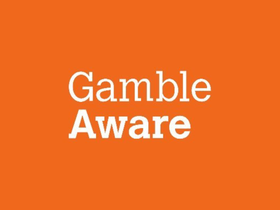Gaming officials in Nevada are looking into a new request to expand existing cashless payment options to include remote identity verification. The request came from Sightline Payments, which has operated a property-wide cashless payment system for Resorts World Las Vegas since June.
Sightline Payments debuted the cashless payment system at Resorts World in June of this year, and it allows patrons to pay for anything on the property without the need to have cash on hand. That includes gambling activities such as slots or table games, as well as retail activities like restaurants and entertainment.
Currently, the fly in the ointment from Sightline’s perspective is that while patrons can pay for gambling and services without cash, when signing up for the service patrons are forced to spend significant time doing in-person verification of identity. Sightline co-founder Omer Sattar noted that the existing system that has prospective clients waiting in long lines to have physical ID verified by an actual person has been “far from optimal”.
In response to the request, the Nevada Gaming Control Board (NGCB) held a 70-minute meeting in the middle of November to discuss the proposal. The next step is for the proposal to come before the three-member board at a future meeting, before final approval by the Nevada Gaming Commission.
For and Against
As is usually the case when matters of money and gambling come up, there is some disagreement about the idea of remote verifications. Station Casinos attorney Marc Rubinstein is among the detractors, claiming that “Federal law indeed requires in-person validation of a government-issued ID in order for a terrestrial casino transaction.”
That view seems to be the minority at the moment and was called into question by board members. Members pointed to the 30 jurisdictions nationwide that already allow remote setup and verification for online gaming and seven states that use similar verification methods.
Sightline already has 230,000 accounts in Nevada, with its cashless payment system fully in place at Resorts World Las Vegas. The sticking point is that while an active account gives users the ability to do cashless transactions at properties in Nevada, verifying the account at the beginning of the process requires manual, in-person verification.
Satter detailed some of the issues faced by patrons trying to get their new accounts verified. “At Resorts World, primarily because of the ID verification issue, in the absolute best of cases the time was six minutes. In reality, the time was more like two hours.
“That included paper forms being filled out, people writing Social Security numbers on pieces of paper and handing them to cage personnel, and cage personnel trying to identify each person by looking at their ID. Our partners have been quite successful, but the experience from a user perspective [hasn’t been]. The lines have been hundreds of people long waiting to enroll and fund and play. That’s what we’re trying to solve over here.”
Satter and Sightline are looking to bring Nevada in line with an Oct 19 memo from Financial Crimes Enforcement Network (FinCEN) that discusses what constitutes good verification documentation in the remote world. That included digital uploads of driver’s licenses or passports for verification purposes.
The NGCB is looking for further discussion of the idea. Board Chairman J. Brin Gibson said the discussion should be reopened in a future meeting, with fellow member Brittnie Watkins looking for more detailed and vetted arguments from both sides of the issue.
There is no word on when that next meeting might take place, but it is clear Nevada is at least considering going to a fully remote cashless system. No decisions have been made yet, but remote verification for cashless payments is clearly something on the mind of regulatory officials in Nevada.



